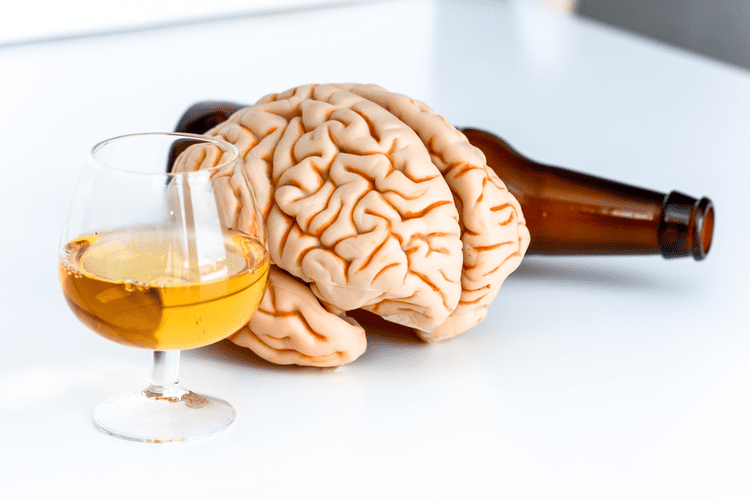To track progress, therapists can use various tools such as self-report questionnaires, behavioral observations, or goal planning in rehabilitation. They use a range of approaches, including cognitive-behavioral therapy (CBT), psychoanalytic therapy, and humanistic therapy, to help clients overcome their challenges. Therapeutic interventions for individuals with dementia aim to maintain the highest quality of life possible and alleviate symptoms. Couples therapy is a specialized form of therapy that focuses on improving relationships and resolving conflicts between intimate partners. It aims to help couples identify and address issues, improve communication, strengthen emotional bonds, and develop healthier patterns of interaction.
Family Therapy
- This may include, for example, a best friend, adult relatives or a member of your loved one’s faith community.
- In a study conducted on children with autism, the combination of CBT and virtual reality environments showed significant success in reducing specific phobias and fears.
- Their body may be building up a tolerance to their substance abuse.
- A treatment plan is a comprehensive document outlining the course of action for addressing the client’s issues and achieving their therapeutic goals.
- When overcoming addiction, interventions stand out as powerful tools for initiating change and guiding individuals toward the path of recovery.
- Research has shown consistent outcomes for both phone and text-based hotlines.
If the subject of the intervention knows they have support as they enter medical detox and a comprehensive rehabilitation program, they are more likely to agree to treatment. It can be helpful to partner with an intervention specialist who may either attend your intervention, if you prefer, or simply help you develop your plan. You are likely to have questions that pertain specifically to your loved one’s circumstances. An interventionist can advise you about how to create https://gettags.info/h-beatyesterday/ a plan that’s poised for success. These professionals have been involved with numerous interventions; they can help you create a plan that’s tailored to your loved one’s situation. Gaining knowledge on the available treatment types marks an essential step towards a loved one’s recovery.

Most Common Concerns About Interventions
This section delves into each type of therapeutic intervention. Psychodynamic therapy aims to help clients gain insight into these conflicts and develop healthier ways of coping and resolving them. A key aspect of this therapy is the collaborative relationship between the therapist and the https://engenegr.ru/gost-r-52887-2007 client, where they work together to set realistic goals and develop practical strategies to achieve them.

They Are Responding Positively – Now What Do I Do?

An addiction professional helps figure out the scope of the issue and what treatment options would be right. Treatment options can vary in intensity and scope, and they occur in various settings. Options can include brief early intervention, outpatient treatment or day treatment programs.


Unfortunately, too often, well-meaning friends and family members attempt to carry out interventions with minimal professional input and oversight. If a mental health intervention isn’t done correctly, the person can feel like they’re being attacked by people they trust and they can quickly become defensive. Family, friends, and colleagues bring unique insights to the process of the intervention through their personal relationships with the loved one. https://365wyoming.com/in-the-usa-it-was-suggested-that-deer-can-transmit-a-deadly-virus-to-humans.html On the other hand, professional interventionists bring expertise and experience, guiding the process to ensure a structured and effective approach.
- It is usually organized by family and friends, and sometimes guided by an intervention specialist.
- You don’t want your loved one to feel cornered and retreat from the intervention.
- You will want everyone to have prepared a speech, and possibly speak in turns.
- For the benefit of the person who is suffering with addiction, you must bridge every single gap and bring every member of their inner circle into the light to help you form this intervention.
- The participation of friends and colleagues in the intervention underscores the message that the individual’s alcohol abuse has repercussions that extend beyond the immediate family.
It’ll come in handy if your loved one finds out what’s happening and refuses to meet. It’s a chance for you to talk to your loved one about their alcohol or drug habits. There are numerous possible outcomes for a mental health intervention. Every individual and mental health condition is unique and is influenced by a myriad of internal and external factors. This can make it challenging to recognize what a good outcome looks like.
- In these situations, especially if the user is particularly fond of the family member, there’s a good chance that they will listen and submit to seeking help.
- Friends and family who have written a letter to the addicted person should practice reading them aloud.
- You need to verbally and calmly let them know why they are hurting everyone, and make the information critical.
- This makes crisis intervention accessible, as responders can be trained quickly.
- Preparation involves researching intervention techniques, selecting a supportive team, and planning the logistics of the intervention.
- This world is full of doubts and fears, but with You by my side, I know that all things are possible.
- Bring healing where it needs to be found and give me the strength to push through this trying time in my life.
- Others isolate themselves in their rooms, stop attending social events, and become difficult to reach or find.
- Qualified mental health professionals with specific training and experience in addiction treatment are often are trained and certified interventionists.
The journey to recovery can be daunting, filled with challenges and setbacks. Yet, with a solid understanding of the intervention process, the right support, and a commitment to recovery, it is a journey worth taking. After all, the end goal is not merely sobriety but a reclaimed life, full of promise, hope, and joy.
